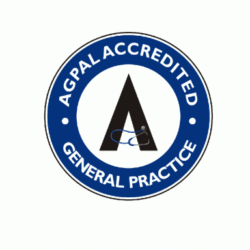Obstructive Sleep Apnoea (OSA) is a condition where the airways become blocked when a person is asleep. It is a serious medical condition that affects a person’s health and quality of life.
The severity of the condition can vary between individuals, meaning there may be partial or complete restriction of the airway during sleep. The restriction may last from several seconds to up to a full minute. The lack of oxygen causes the person to ‘wake’ briefly, generally followed by a snort or loud snore and a gasp which restores airflow. They tend to fall back asleep immediately with no idea that this has occurred.

This can happen hundreds of times per night.
Normal sleep – less than 5 apnoea episodes / hour
Mild sleep apnoea – between 5-15 episodes / hour
Moderate sleep apnoea – 15-30 episodes / hour
Severe sleep apnoea – more than 30 episodes / hour
Sleep apnoea tends to affect men more than women and has been strongly linked to obesity. It is estimated to affect one in four men over 30 years of age. Post menopausal women are also commonly affected, especially if they are also overweight.
Other contributing factors include:
- Alcohol consumption – especially in the evening
- Large tonsils
- Nasal congestion and obstruction (e.g. when a person has a cold or flu)
- Medications such as sleeping tablets
- Facial bone shape and the shape of the jaw
- Thyroid conditions and/or large thyroid gland.
Many people with sleep apnoea do not know it, especially if they live or sleep alone. Often it is a partner who points out that the snoring and gasping for breath is keeping them awake.

Symptoms to be aware of include:
- Snoring – especially when lying on the back
- Daytime sleepiness
- Waking up feeling unrefreshed
- Irritability and moodiness
- Difficulty concentrating
- Forgetfulness
- Impotence and reduced libido
- Frequent need to urinate during the night
- Morning headaches
Untreated or un-managed sleep apnoea can have serious side effects and is linked to a number of problems that decrease quality of life and general health. These include:
- Increased blood pressure (hypertension)
- Increased heart rate
- Metabolic problems e.g. difficulty losing weight
- Impaired liver function
- Severe fatigue (especially problematic for those who drive or operate heavy machinery during the day)
- Nervous system problems
- Depression
- Type 2 diabetes
- Cardiovascular disease
Diagnosing sleep apnoea is generally achieved with an overnight sleep study, referred by your doctor. This tests measures sleep, breathing and oxygen levels during the night.
There are a number of conservative treatment options that can aid in improving sleep quality and reducing apnoea episodes, the most useful of which are weight reduction, avoiding alcohol in the evenings and adjusting to a side sleeping position.
Active treatment is required for moderate to severe sleep apnoea. This generally involves an air pump machine (commonly called a CPAP) worn during the night to hold the throat open and maintain a clear airway. Oral appliances (such as a mouthguard) fitted by a dentist can also be useful, especially in milder forms of sleep apnoea. In very severe cases, surgical operations to the soft palate and base of the tongue may be useful.




